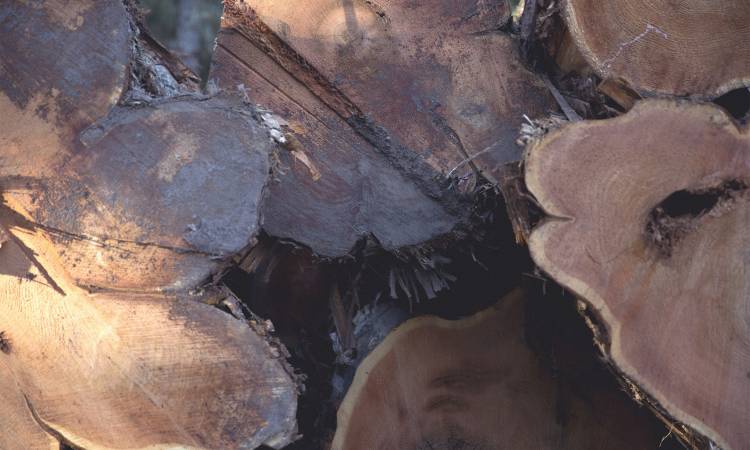Wednesday, 23 January 2019
Illegal logging: A challenge and opportunity for FSC
January 23, 2019
Illegal logging and the international trade in illicitly harvested timber is a serious crime estimated to account for 15-30% of all timber traded1. It is most prevalent and persistent in tropical forest areas worldwide.
Illegal logging undermines the legal trade in forest products by depressing prices, contributes to national and global insecurity by spreading corruption and funding militias, affects the health, safety, and livelihoods of communities, and is responsible for deforestation, habitat loss, species extinction, contributions to global warming. It is arguably the greatest and most vexing challenge faced by those seeking to preserve working forests, particularly in tropical regions.
FSC as a force for positive change in forest legality
While there is no single “silver bullet” to tackle illegal logging and its myriad consequences, FSC certification is a proven part of the solution, including requiring certified forest managers to:
- Demonstrate legal status of the forest management unit and clear tenure and use rights.
- Comply with all applicable national and local laws, regulations and administrative requirements. Must demonstrate legal rights provide for harvest of products within the management unit.
- Systematically protect the forest from illegal resource use.
- Comply with all applicable national and local laws and international conventions related to transportation and trade of forest products.
- Identify, prevent and resolve disputes over issues of statutory or customary law.
- Commit not to offer or receive bribes or other form of corruption.
In addition, FSC chain-of-custody certified manufacturers that mix forest products from FSC certified and uncertified sources must implement due diligence systems for the uncertified materials to prevent sources resulting from illegal logging and other egregious forest practices from entering their supply chain. In doing so, these certificate holders employ approved risk assessments and control measures and grant access to evidence of conformity with FSC requirements to third party auditors. Due diligence systems must be reviewed, and if necessary revised, at least on an annual basis.
FSC as a means of reducing risk in sourcing
Amendments to the Lacey Act in 2008 ban trafficking in illegally-sourced timber and paper products. According to the U.S. based Forest Legality Initiative:
- “Penalties for violating the Lacey Act vary in severity based on the violator's level of knowledge about the product: penalties are higher for those who knew they were trading in illegally harvested materials. For those who did not know, penalties vary based on whether the individual or company in question did everything possible to determine that the product was legal. In the U.S. system, this is called "due care," and is a legal concept designed to encourage flexibility in the marketplace." (3)
Sourcing FSC-certified materials can be an effective form of due care and can help reduce the risk of Lacey Act violations.
Challenges
While FSC has demonstrated efficacy in addressing illegal logging, there are still many challenges that must be overcome:
- It remains difficult for US authorities to identify illegally harvested material in imported products.
- In some parts of the world, corruption can make it difficult for FSC-certified operators to credibly retain FSC certification.
- While FSC may positively influence the legal context of a region, its influence can be limited to a certified concession’s boundaries.
- FSC can struggle to find solutions to retain robust standards in countries with specific anti-environment or anti-human rights laws.
- There remains a market-wide obstacle in the lack of consistent, credible, fool-proof verification of legal materials.
What’s next for FSC – and on the horizon for industry
As an open system, FSC must respond with integrity to all problems and continues to innovate to improve our system’s effectiveness. This is also true for illegal logging.
There is widespread acknowledgment on the part of the forest products industry that better solutions are needed – and there are many simultaneous efforts underway to help address the problems that allow trade in illegal wood to continue.
In partnership with other organizations, FSC is working to develop new systems capable of conveniently and reliably tracing the origin of forest-based products, even when comprised of a mix of inputs. FSC is testing a number of technologies that can potentially identify species and points of harvest of many finished products. To be able to use these technologies, such as DNA and stable isotopes, one needs reference samples from specific forests. FSC is leading a global effort to collect such samples from FSC and non-FSC certified forests. Such systems will give key stakeholders – consumers, business buyers, customs agents, and others – reliable means of establishing the provenance of a product, making it far easier to detect products made from illegal wood.
When such systems are in place, we expect greater momentum toward responsibly sourced wood across forest-based industries. Enforcement of the Lacey Act will become easier, and businesses and consumers will become accustomed to having better provenance information at hand with which to make buying decisions. Given that a number of other factors contribute to the continued expansion of FSC, the advent of these systems should herald a new round of growth opportunities - particularly in industries for which tropical wood is an important material. Stay tuned!
- 1. Source: Interpol Project LEAF, January 2017
2. https://ic.fsc.org/en/document-center/id/59
3. https://forestlegality.org/policy/us-lacey-act
